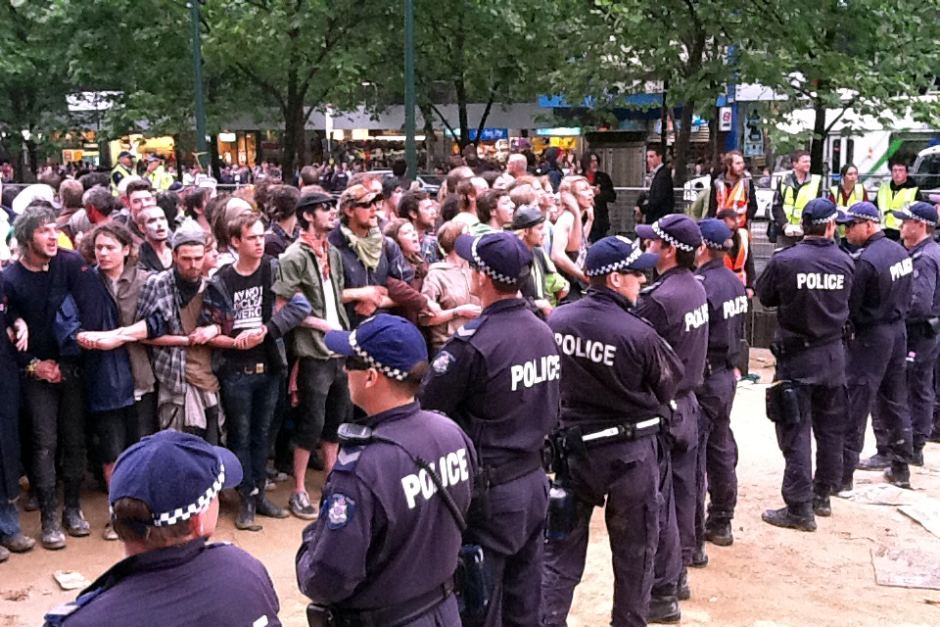Lessons from the Occupy Movement: A web forum
3.00pm Sunday, February 21, 2021
Inspired by the global call for action by the Indignados movement in Spain, the protests and revolutions across the Arab World and the Occupy Wall Street protests in New York City, Occupy Melbourne and Occupy Sydney was launched by many hundreds of activists in October 2011. Occupy sought to transform the centre of major cities into a ‘common’ space of political demonstration where people could learn, discuss, highlight and disrupt abuses of political and corporate power. The policing of the Occupy movement in Australia and around the world set a template that is faced by movements today.
In this online panel organised by Melbourne Activist Legal Support as part of Extinction Rbellion Australia’s Festival of Civil Disobedience , activists and advocates from Melbourne and Sydney will draw out and explore lessons for activists today including the challenges of holding public space, anticipating the level of repression and the legal and human rights support structures set up during and after the occupation itself.
On the panel is: Megan Fitzgerald from Fitzroy Legal Service, Larissa Payne from Occupy Sydney and XR Sydney Erin Buckley from Occupy Melbourne Legal Support (OMLS) and Anthony Kelly from MALS.
Register here: https://actionnetwork.org/events/lessons-from-the-occupy-movement/
Occupy Melbourne is part of the MALS origin story!
Some history

‘Today my whole perception of what freedom means to me in Australia was turned on its head as I witnessed the scariest brutality I have ever seen police conduct’
Emily 37
In the early hours of Friday 21 October 2011, Occupy Melbourne protesters were ordered by Melbourne City Council to leave the City Square. The Square was fenced off from protesters, and surrounded by hundreds of police in riot gear.
At around 11:30am, the Public Order Response Team in groups of 4–6 start to physically remove the Occupiers one by one, carrying or dragging them out of City Square. Occupiers with arms linked are wrenched out of that formation. Over 100 people are removed whilst hundreds more gather to watch and support protesters. The eviction takes many hours. The Occupy Melbourne Legal Support Team (‘OMLST’) documented multiple physical injuries sustained in the policing of Occupy Melbourne, cuts, grazes and bruises as well as serious injuries including broken noses, black eyes and back injuries. It also documented longer-term psychological effects.
‘For a while I would feel a wave of anxiety/panic come over me whenever I walked past or saw a police officer’
Sasha, 25
The Report ‘Occupy Policing: A Report into the Effects and Legality of the Eviction of Occupy Melbourne from City Square on 21 October 2011‘ was published one year on from the controversial eviction and was highly critical of the Melbourne City Council and Victoria Police—who authorised and effected the eviction and documents the personal stories of people who took part in the Occupy Melbourne protests and their experiences of policing.
Occupy Melbourne Legal Support Team (‘OMLST’) received a Tim McCoy award in 2012 in recognition of its work and its members later formed Melbourne Activist Legal Support as ongoing all-volunteer organisation that could respond to emerging movements, build and provide resources and provide strong, sustainable legal support infrastructure for movements across Melbourne and Victoria.
The rest is history!
